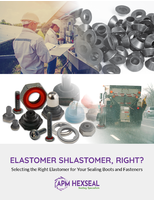Report asserts customs rule costs more than $20 billion/year.
Press Release Summary:
Based on survey of 215 CBC members representing small to large businesses, report by Customs and Border Coalition highlights huge cost of U.S. Customs and Border Protection's 10+2 Rule, which requires manufacturers and other importers to provide new data to government. Report asserts that compliance with rule is difficult and disruptive to respondents' supply chains, imposes permanent operation costs of $3.5 billion each year, and adds 3 days of additional delay to global supply chain.
Original Press Release:
Industry Report Shows Customs Rule Excessively Expensive
$20 Billion In New Costs On Business, Says Engler
WASHINGTON, D.C., June 18, 2009 -- A new report by the Customs and Border Coalition (CBC) highlights the huge cost of U.S. Customs and Border Protection's "10+2" rule, which requires manufacturers and other importers to provide expensive new data to the government.
"The Trade Partnership, Inc., report, based on a survey of companies accounting for nearly 60 percent of seaborne manufactured imports, corroborates what the NAM said last year - the new customs rule will impose a cost burden of $20 billion a year on the economy," said National Association of Manufacturers (NAM) President John Engler. The NAM houses the CBC, which represents a broad base of companies and associations engaged in international trade.
"In providing the report to the government, we have also provided practical and actionable recommendations for modifications that will reduce the cost of the new customs rule without diminishing national security one bit," said Engler. "Department of Homeland Security Secretary Napolitano has already shown she is sensitive to the need for U.S. economic security as well as national security, and we believe our recommendations will get careful consideration.
"The potential impact of this rule is huge," Engler said. "To put the cost in perspective, it is virtually the equivalent of doubling the import tariffs that manufacturers now pay to bring products and components into the United States.
"Manufacturers and other members of the CBC care greatly about effective national security, but we believe it is the responsibility of the government to further refine the 10+2 rule in ways that reduce the cost while still maintaining full security," he said. "We believe our proposals do that."
The CBC commissioned the study to provide feedback and concrete data to Customs and Border Protection for structured review of the 10+2 Interim Final Rule. The study is based on a survey of 215 CBC members representing small, medium and large businesses.
Based on the results of the survey, the report concludes that for small, medium and large companies alike, the impact of implementing 10+2 is significant. The major findings:
Based on the experience of CBC member companies attempting to comply with the rule, both the CBC and the NAM are providing recommendations to the Department of Homeland Security that will reduce the costs of compliance while not diminishing national security. Key recommendations would increase the focus on high-risk shipments and reduce compliance costs for trusted shippers that have met customs requirements for secure supply chains.
The CBC was founded in 2008 to create a unified industry voice on trade facilitation, national security and customs and border issues. The CBC represents a broad base of companies and associations engaged in international trade and involved with global supply chains, from manufacturers and retailers to customs brokers and freight forwarders. For a copy of the complete report, visit www.nam.org/cbc.
The National Association of Manufacturers is the nation's largest industrial trade association, representing small and large manufacturers in every industrial sector and in all 50 states. Headquartered in Washington, D.C., the NAM has 11 additional offices across the country. Visit the NAM's web site at www.nam.org for more information about manufacturing and the economy.




